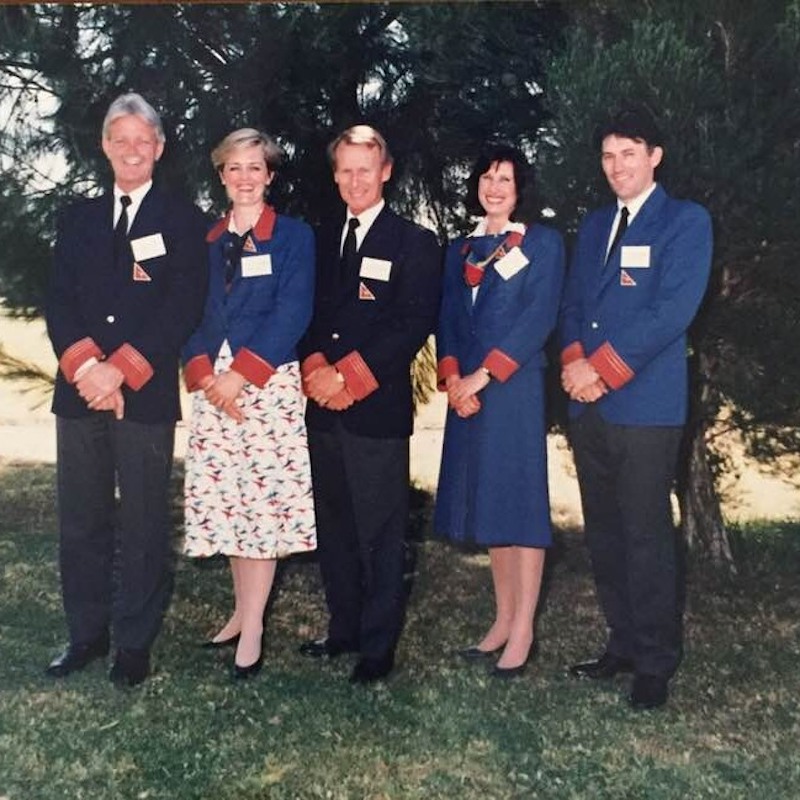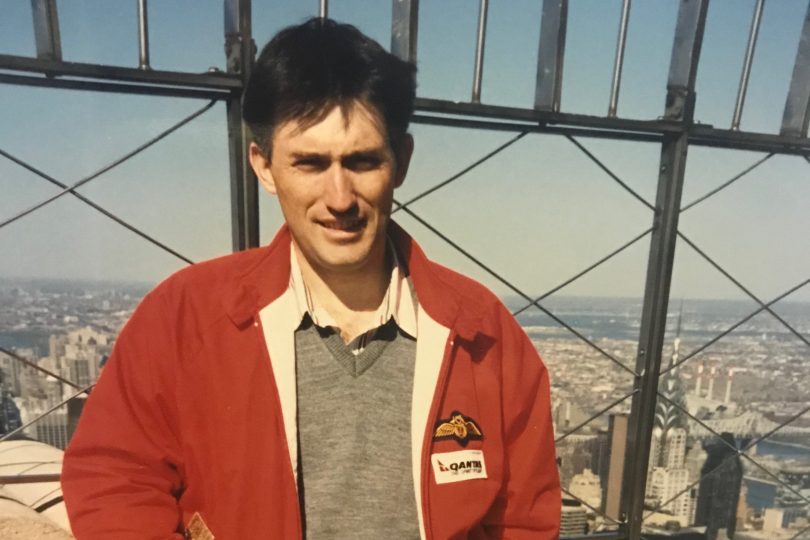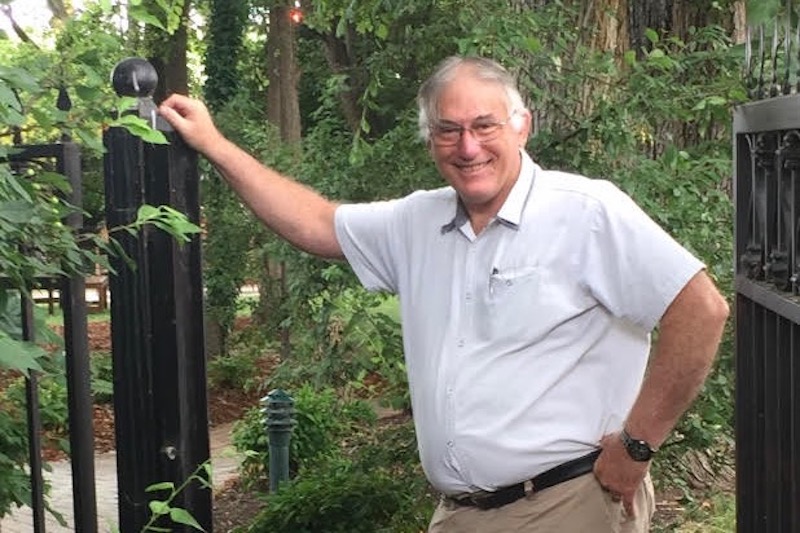
More than 30 years on, Phil Joyce (far right) thanks his lucky stars for a decade of unforgettable Qantas memories. Photo: Supplied.
Phil Joyce describes his time with Qantas from 1981 to 1991 as brilliant and fortuitous. It marked the last decade before the Australian carrier changed from a government-owned identity to a privatised operation.
Now retired in Goulburn, Phil reflects on his unforgettable experiences travelling the kangaroo route to London, the Pacific islands, Europe and the United States.
Starting as a flight attendant, he became cabin crew training manager before switching to other senior roles. He eventually took a redundancy and left Qantas and Sydney for a rural lifestyle to raise his family with wife Gail.
Phil still feels like one of the Qantas family, but suspects staff no longer have the affection that wells inside his heart each time he hears “I still call Australia home”.
“I still love Qantas. It’s the most amazing company,” he says. “But it has become a commercial company. Often the things we used to hold dear are not there anymore. It really was a family.
“When the 767 arrived we had this massive, massive party at Mascot. You had hundreds of Qantas staff there. The feeling of pride was just unbelievable.”
As for the flights themselves?
“We’d fly to London and normally get 72 hours slip [layover time], turn around and come back, have a day or two in Bahrain, fly to Singapore [stay one or two days] and back home into Sydney,” he recalls.
“We’d get back into Sydney at 6:30 in the morning, classed as your last day of duty. From the next day, we’d get nine days off.”
With allowances for out-of-pocket expenses and time off equally generous, Phil was always eager to give his best.
On Christmas flights, he’d even play Santa. Emerging from a galley lift after an announcement from the cockpit, he’d hand children gifts bought by flight staff in Singapore.
“The captain would say ‘I can see a blip on the radar’ and slow the aircraft down,” Phil says.
“There was a hatch into the lower galley that came out in the aisle. I’d bang on the hatch and a crew member downstairs would open and as Santa I’d hop down the hatch.
“All the kids and people would be looking out the aircraft to see where I was. It was a fantastic time.”
He says planes are still decorated, but such festive celebrations no longer allowed in case some passengers are offended.

Phil Joyce enjoys New York City as part of his professional development after moving into marketing for the Flying Kangaroo. Photo: Supplied.
Qantas ran the operation based on staff seniority, from allocating hotel rooms to the service order of on-board meals. It meant junior crew members were sometimes left the vegetarian option. Seniority even determined the male staff’s tie colour.
A 17-crew flight included only three women; one in first class, one in business class, and one in economy. Phil says women at that time were forced to leave Qantas on turning 35 – eventually receiving equality after years of campaigning.
Despite the strict hierarchy, his pride for Qantas could be heard on every flight
“People would ask `what have you done today?’ I’d say `I’ve flown to Auckland and prepared 802 meals and 1600 cups of tea and coffee. I had lunch over there and came back again’.”
But life on a Qantas flight was never dull.
He dealt with unruly passengers, some handcuffed. And once retrieved a burning cigarette from under a seat, only to learn the next crew killed a green tree snake lurking in exactly the same place he had been on his hands and knees. Apparently, it had come aboard in Singapore.

Phil has fond memories of his time with Qantas. Photo: Supplied.
Turbulence could be even scarier. Phil split his pants on one flight as he struggled on his feet to help an elderly woman to the crew seat. Even a domestic trip from Canberra to Sydney had to be turned back once because of fierce turbulence.
“I’ve been in situations where the bar carts have actually hit the roof. A bar cart weighing 150 kilos flying up and hitting the roof is not a pleasant thing.”
The drama only adds to Phil’s fond memories of foreign ports, company culture and workmates who kept his spirits soaring through a remarkable decade of service in the skies.
Original Article published by John Thistleton on Riotact.







